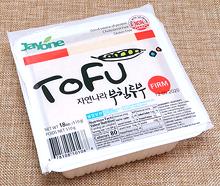
Executives in the sugar industry wanted to bury evidence that sugar contributed to heart disease, and also figured that if people ate less fat, they would eat more sugar. This proved very correct.
To this end, in 1965, they hired Harvard scientists to come up with a major study that downplayed the role of sugar and named fats as the cause of heart disease. When this study was released in 1967, it did not mention that financing came from the sugar industry. This propaganda program continued through the 1970s and beyond.
To the sugar industry's misfortune, it was not they who most benefited, but the High Fructose Corn Syrup industry. With massive government subsidies to corn growers, that industry could easily deliver more sugars at a lower price than the sugar industry could.
An interesting side story here is from the American Heart Association, the poster child for campaigns based on incomplete, badly designed or misleading studies. They based their demonization of saturated fats as the causes of heart disease on a highly defective study. That study replaced saturated fats with polyunsaturated fats, but also significantly reduced sugar consumption. Today, many researchers think it was the decrease in sugar consumption that had the beneficial effect on heart health, and that polyunsaturated oils may be a health risk in the long term.
A new study lead by David S. Ludwig (L2) shows that the low fat diet also contributes significantly to obesity and diabetes. Refined carbohydrates are metabolized differently than fats. Under the influence of excess insulin, which they trigger, calories from carbohydrates are converted directly into fat stored in fat cells, and are unavailable for burning as fuel. This leaves the body short on burnable calories, so it signals for the person to eat more. Of course, if what is eaten is more carbs, it just goes on.
Today the AHA's campaigns against saturated fats and cholesterol are proving misguided at best, and their promotion of trans fats instead of natural fats is considered highly damaging, if not deadly. High end chefs no longer fear to use bacon and lard in their cooking. I expect the next AHA scandal will be the industrially produced polyunsaturated fats, which the AHA so eagerly promotes.
Disclaimer: material published here is derived from publicly available sources and is for information only. Nothing here should be construed as medical or dietary advice. I have no medical or dietary credentials and claim none, anywhere, not even on dates.
lowfat.html 181116
©Andrew Grygus
- ajg@aaxnet.com - Linking and non-commercial use permitted